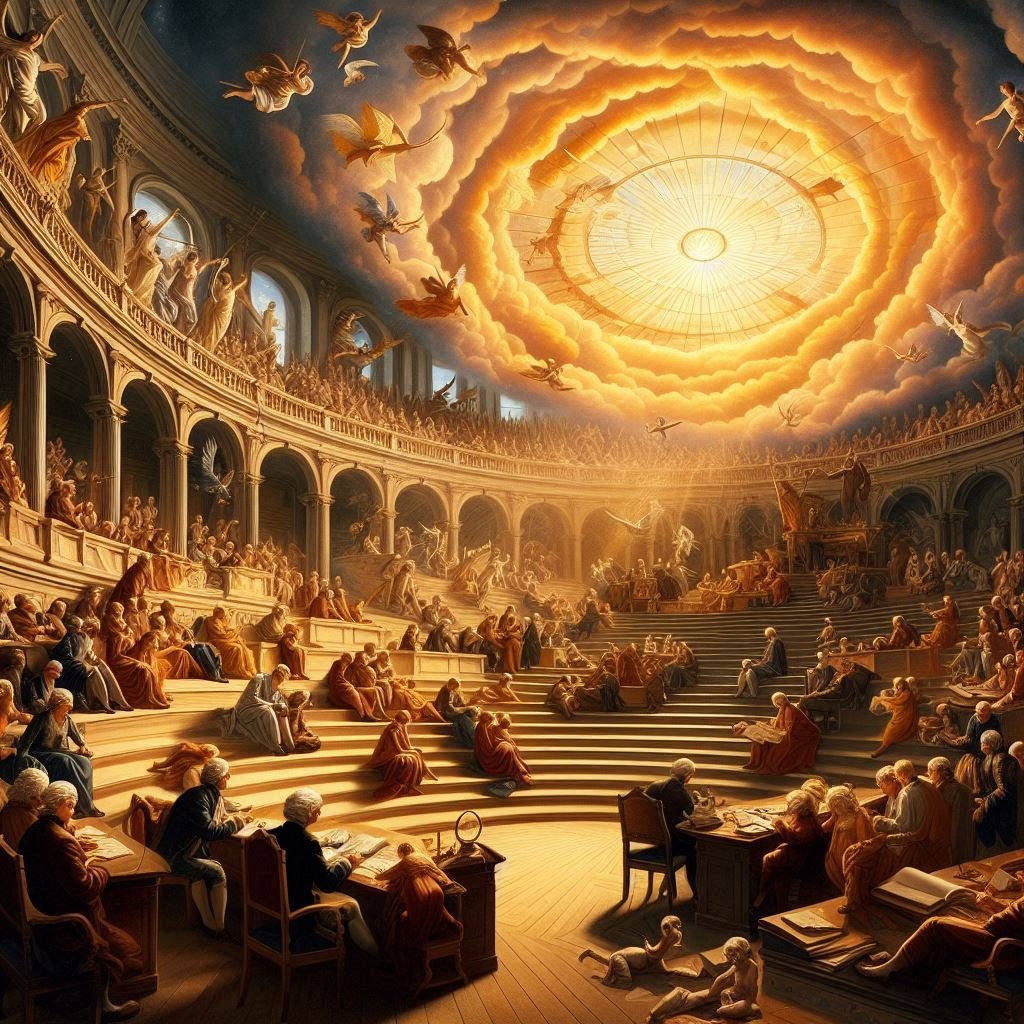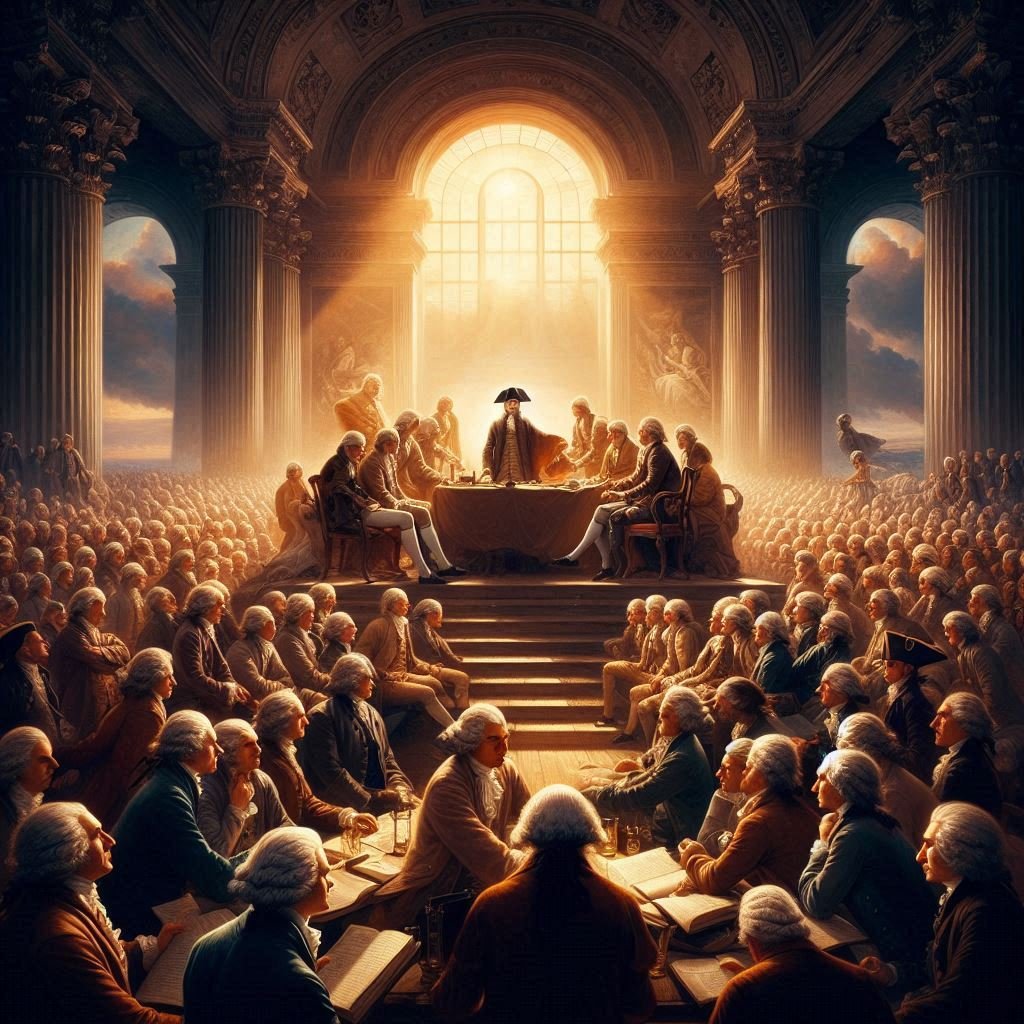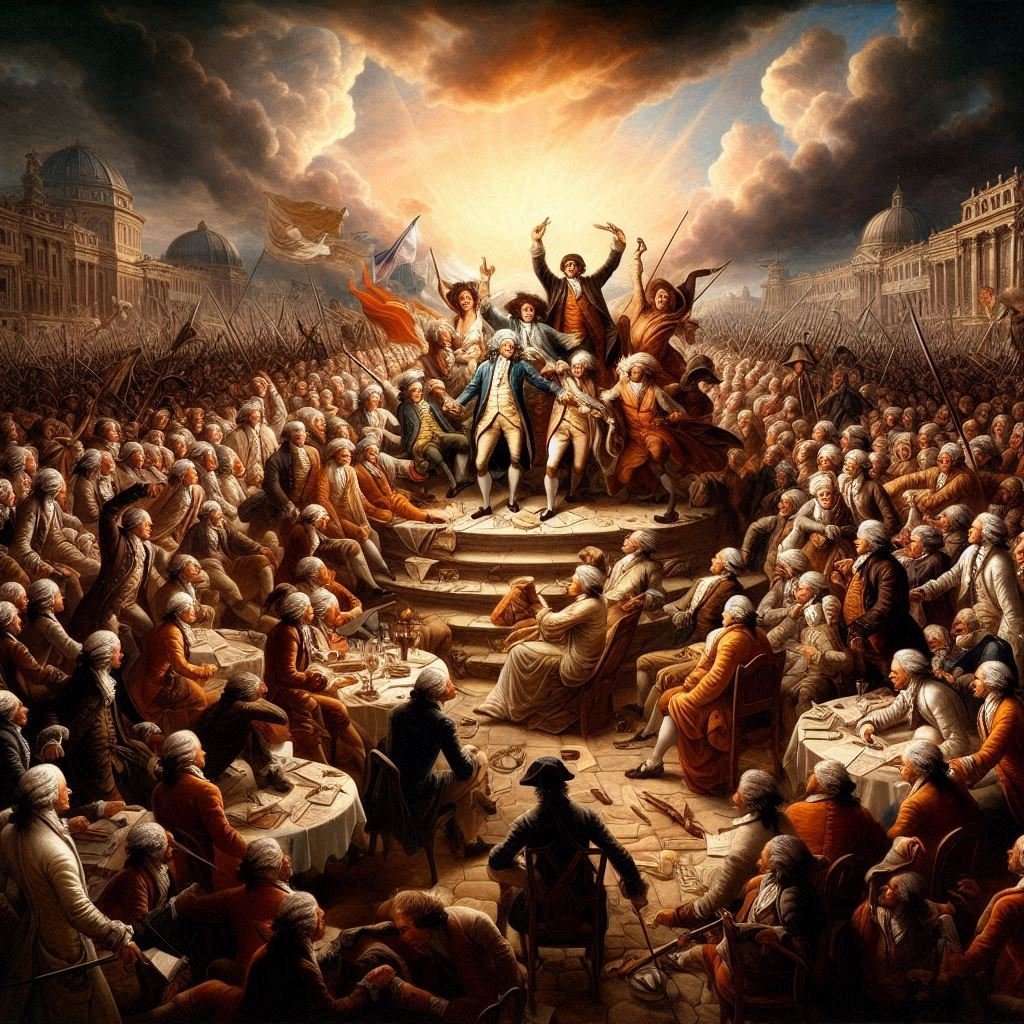Introduction: A New Era of Thought and Change
The 18th century witnessed a profound shift in how people understood the world around them. Known as the Age of Enlightenment, this period emphasized reason, science, and individual rights over tradition and superstition. Philosophers such as John Locke, Voltaire, and Jean-Jacques Rousseau challenged established norms, advocating for freedom, equality, and the power of human reason. These ideas sparked revolutionary movements across the globe, most notably the American Revolution (1775-1783) and the French Revolution (1789-1799).
This era was not just about philosophical thought—it had real-world consequences. As people began to question monarchies and authoritarian rule, they sought to create societies based on democracy and justice. The influence of Enlightenment ideals can still be seen in the founding documents of many modern nations, including the United States Constitution and the Declaration of the Rights of Man in France.
The Enlightenment: Reason, Science, and Human Rights
At the heart of the Enlightenment was a desire to understand the world through rational thought and empirical evidence. Enlightenment thinkers believed that human beings, through reason and science, could improve society and achieve progress. This was a radical departure from the religious and monarchic institutions that had dominated Europe for centuries.

John Locke, a central figure in the Enlightenment, introduced the idea of natural rights—life, liberty, and property. He argued that governments exist to protect these rights and that any government that fails to do so can be justly overthrown. Locke’s ideas heavily influenced the American and French Revolutions, where people fought for their inherent rights against oppressive regimes.
“The mind is furnished with ideas by experience alone.” — John Locke
Enlightenment ideas also encouraged the advancement of science. Figures like Isaac Newton demonstrated that the natural world could be understood through observation and mathematics. This approach to knowledge revolutionized how people viewed the world, giving rise to modern scientific methods.
Key Enlightenment Ideas: Facts and Figures
| Figures & Facts | Details |
|---|---|
| John Locke (1632-1704) | Advocated for natural rights and government by consent |
| Isaac Newton (1642-1727) | Formulated the laws of motion and universal gravitation |
| Voltaire (1694-1778) | Criticized religious intolerance and advocated for freedom of speech |
| Jean-Jacques Rousseau (1712-1778) | Emphasized the social contract and collective will of the people |
Revolutions Inspired by Enlightenment Thought
The Enlightenment did not remain confined to intellectual circles. Its ideas spread across Europe and the Americas, inspiring some of the most significant revolutions in history. The American Revolution (1775-1783) was directly influenced by Enlightenment principles. The Declaration of Independence, authored by Thomas Jefferson, was grounded in Locke’s philosophy of natural rights and the right to overthrow tyrannical governments.

Similarly, the French Revolution (1789-1799) drew heavily on the ideas of Rousseau and Voltaire. The French sought to dismantle the monarchy and establish a republic based on liberty, equality, and fraternity. The revolution led to the Declaration of the Rights of Man and of the Citizen, a fundamental document that proclaimed the equality of all men and the protection of their natural rights.
“Man is born free, and everywhere he is in chains.” — Jean-Jacques Rousseau
Both revolutions reshaped the political landscape, challenging monarchies and setting the stage for modern democracies. However, they also came with significant human costs. The American Revolution resulted in around 25,000 casualties, while the French Revolution, particularly during the Reign of Terror, led to an estimated 40,000 deaths.
Revolutionary Movements: Facts and Figures
| Figures & Facts | Details |
|---|---|
| American Revolution (1775-1783) | Around 25,000 casualties |
| French Revolution (1789-1799) | Reign of Terror resulted in 40,000 deaths |
| Declaration of Independence | Signed on July 4, 1776, based on Locke’s principles |
| Declaration of the Rights of Man | Proclaimed equality and individual rights in France, 1789 |
The Spread of Enlightenment Ideas Across the Globe
The Age of Enlightenment not only influenced revolutions in Europe and America, but it also had a profound impact on colonial territories. In Latin America, figures like Simón Bolívar and José de San Martín were inspired by the ideas of liberty and self-governance. These leaders played critical roles in liberating countries such as Venezuela, Colombia, and Argentina from European colonial rule in the early 19th century.

Enlightenment ideals also began to challenge the institution of slavery. Thinkers like Abolitionists used Enlightenment arguments about equality and human dignity to advocate for the end of the slave trade. The 18th century marked the beginning of a global movement to recognize the rights of all individuals, regardless of race or status.
“All men are born free, but everywhere they are in chains.” — Rousseau, reflecting on the contradictions of freedom in an unequal society
While Enlightenment ideas spread rapidly, their implementation varied greatly depending on local contexts. In Europe, monarchies remained in place, but with the growth of constitutional governments. In the Americas, revolutionary movements succeeded in forming new nations grounded in democratic principles, though many struggled with the legacy of inequality.
Global Impact of Enlightenment Thought: Facts and Figures
| Figures & Facts | Details |
|---|---|
| Simón Bolívar (1783-1830) | Led independence movements across Latin America |
| Abolition of Slave Trade | British Parliament abolished the slave trade in 1807 |
| Spread of Democratic Ideas | Enlightenment thought influenced the development of modern constitutional governments across Europe and the Americas |
Conclusion: The Dual Legacy of Enlightenment and Revolution
The Age of Enlightenment and the revolutionary movements it inspired changed the course of history. Through the spread of reason, science, and the belief in human rights, this period laid the foundation for the modern democratic state. The revolutions of the 18th century, especially in America and France, were watershed moments in the fight for individual liberties and the challenge to authoritarian rule.
However, the legacy of this period is also complicated. While Enlightenment thought advocated for equality and freedom, the realities of colonialism, slavery, and ongoing inequality highlighted the limitations of these ideals. Nevertheless, the impact of the Enlightenment continues to resonate, as nations around the world strive to balance the ideals of liberty and justice with the complexities of modern society.
The Age of Enlightenment reminds us that the fight for progress is ongoing and that the pursuit of knowledge and freedom is a continuous journey.
